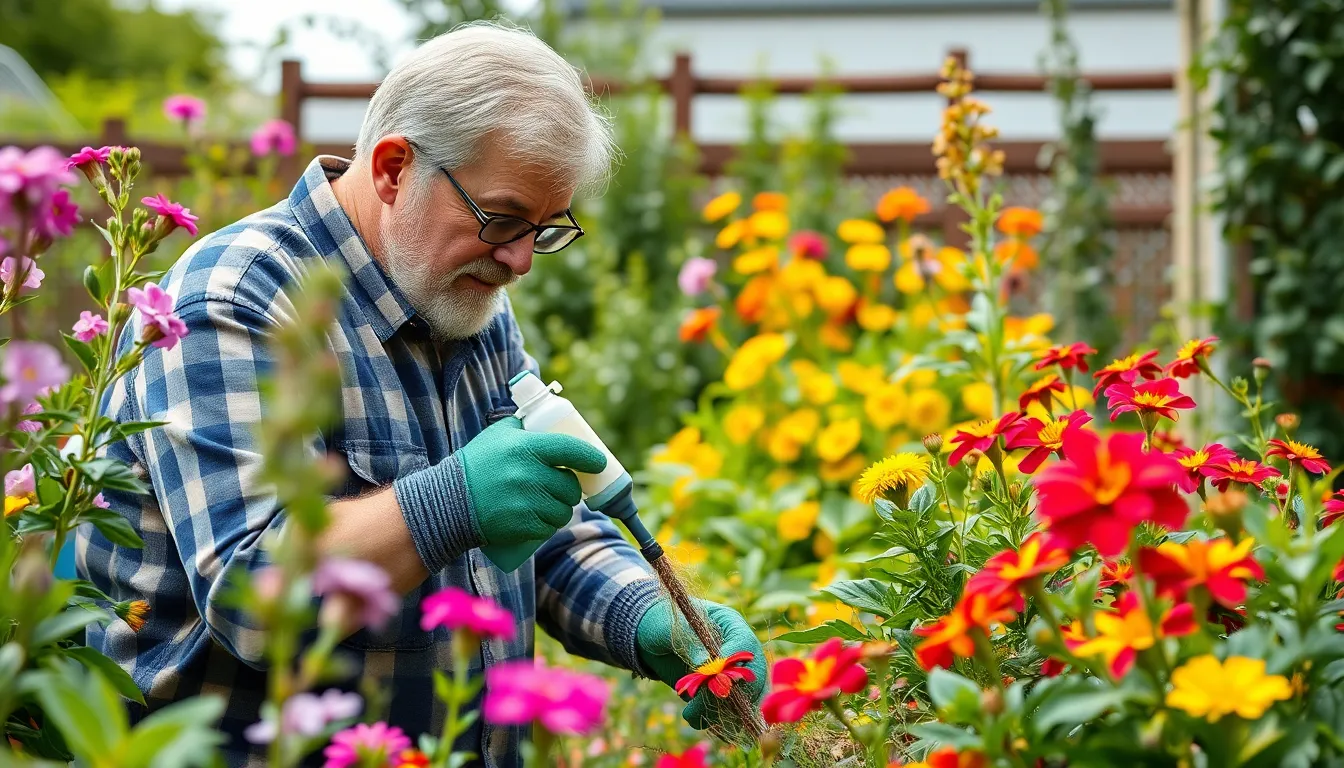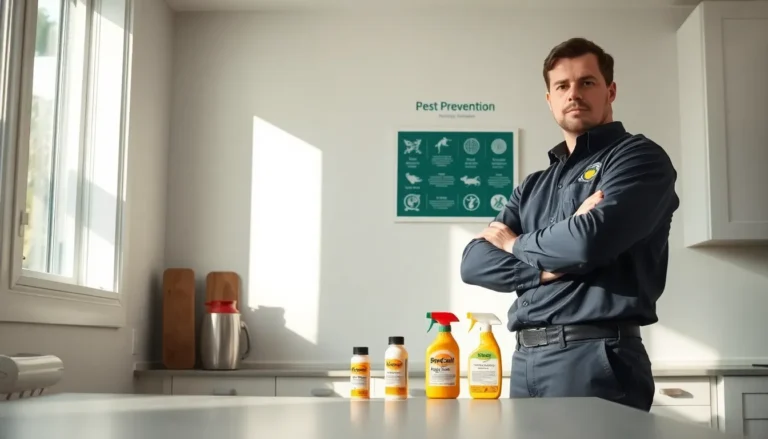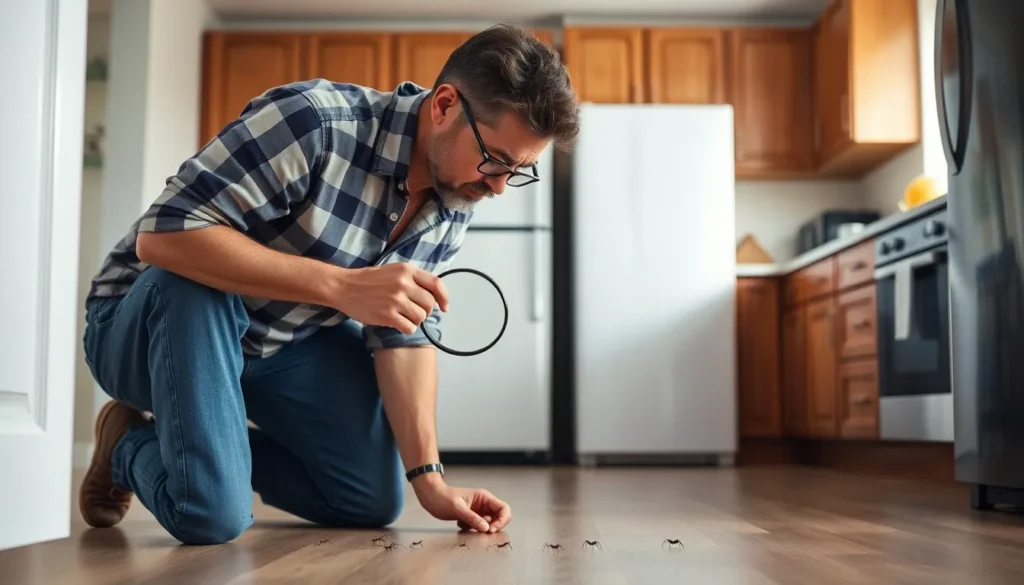Table of Contents
ToggleEvery homeowner knows the sinking feeling of finding an uninvited guest scuttling across the kitchen floor. Whether it’s a sneaky cockroach or an army of ants marching through the pantry, pests have a knack for ruining a perfectly good day. But fear not! With the right pest control strategies, these little intruders don’t stand a chance.
Understanding Pest Control Home
Pest control plays a crucial role in maintaining a safe and comfortable living environment. Homeowners benefit from effective measures that prevent pest infestations.
Importance of Pest Control
Effective pest control safeguards health by reducing the presence of disease-carrying pests. It protects property value, as infestations can damage structures and belongings over time. Homeowners save money by addressing pest issues early, preventing costly repairs. Additionally, pest management promotes peace of mind by creating a comfortable home atmosphere. Experienced pest control professionals understand local pest behaviors and apply targeted treatments. Regular inspections also catch potential infestations before they escalate, ensuring a healthier living space.
Common Household Pests
Cockroaches commonly invade homes seeking food and shelter, often carrying diseases. Ants present persistent challenges, entering homes in search of food sources. Bed bugs specialize in hiding in small crevices, causing discomfort with their bites. Termites pose a significant risk, as they consume wood structures and compromise integrity. Rodents, such as mice, damage insulation, wiring, and furniture while spreading disease. Identifying these pests promptly facilitates effective management measures, reinforcing the importance of awareness and prevention in pest control.
Types of Pest Control Methods

Effective pest control methods vary based on needs and preferences. Understanding these methods helps homeowners choose the best option for their situation.
Chemical Pest Control
Chemical pest control involves using pesticides to eliminate unwanted pests. These products target specific pests while minimizing risks to non-target organisms. Spray formulations, granules, and baits represent various types available on the market. Pesticides contain active ingredients that disrupt pests’ biological processes, leading to death or repulsion. Safety precautions, such as wearing protective gear and ensuring proper ventilation, remain crucial during application. Regular monitoring after chemical treatment ensures effectiveness and encourages early intervention if needed.
Natural Pest Control Solutions
Natural pest control solutions rely on non-toxic methods and sustainable practices. These approaches include using essential oils, diatomaceous earth, and beneficial insects. Essential oils such as peppermint and lavender repel common pests, while diatomaceous earth acts as a barrier that dehydrates and kills insects. Introducing predators like ladybugs and lacewings helps manage populations of harmful pests naturally. Maintaining a clean environment promotes the success of these methods as it eliminates potential food sources for pests, further reducing their presence in the home.
DIY Pest Control Tips
Implementing effective DIY pest control strategies can significantly reduce pest issues at home. Utilizing prevention methods can make a noticeable difference in maintaining a pest-free environment.
Prevention Strategies
Adopting effective prevention strategies reduces the likelihood of pests entering the home. Maintaining a tidy kitchen prevents food sources, while sealing cracks and crevices stops entry points. Regularly taking out the trash and using airtight containers also limits pest access to food. Keeping the garden well-maintained discourages pests from nesting nearby, and drainage systems should be properly installed to avoid excess moisture. Surveillance for signs of pests, like droppings or damage, ensures early detection and action.
Home Remedies for Common Pests
Utilizing home remedies offers a safe approach to managing common pests. For ants, mixing vinegar and water can disrupt their scent trails. Spraying neem oil effectively addresses aphids and other insects without harming beneficial ones. A mixture of baking soda and sugar can attract and kill cockroaches. Essential oils, such as peppermint and tea tree oil, repel spiders and mice when diluted and sprayed around entry points. Diatomaceous earth serves as a non-toxic barrier against insects by damaging their exoskeletons.
When to Call a Professional
Recognizing the right time to contact a pest control expert is crucial. Certain situations demand professional intervention for effective resolution.
Signs You Need Expert Help
Unusual pest activity often indicates a more significant problem. Observing droppings, nests, or damaged property suggests an infestation. Experiencing persistent issues despite DIY methods signals deeper infestations. Hearing strange noises, especially at night, can reveal hidden pests like rodents. Allergic reactions or respiratory problems in family members can stem from pest droppings or bites. If these signs appear, immediate professional assistance is essential to manage the situation effectively.
Choosing the Right Pest Control Service
Selecting the appropriate pest control provider requires careful consideration. Researching local companies helps identify reputable services with positive reviews. Checking credentials, including licenses and certifications, ensures compliance with regulations. Asking about treatment methods clarifies whether they use chemical or natural solutions. Verifying their experience with specific pests, such as bed bugs or termites, ensures expertise. Comparing estimates from different companies can reveal competitive pricing. Engaging with customer service representatives helps gauge responsiveness and support. Making informed decisions leads to successful pest management.
Effective pest control is essential for maintaining a healthy and comfortable home. By understanding common household pests and their behaviors homeowners can take proactive steps to prevent infestations. Utilizing both chemical and natural solutions allows for a balanced approach to pest management.
Incorporating DIY tips and home remedies can significantly reduce pest issues while promoting a clean living environment. Knowing when to seek professional help ensures that persistent problems are addressed promptly. Ultimately investing time and effort into pest control not only protects property value but also enhances overall well-being. A pest-free home contributes to peace of mind and a more enjoyable living space.







